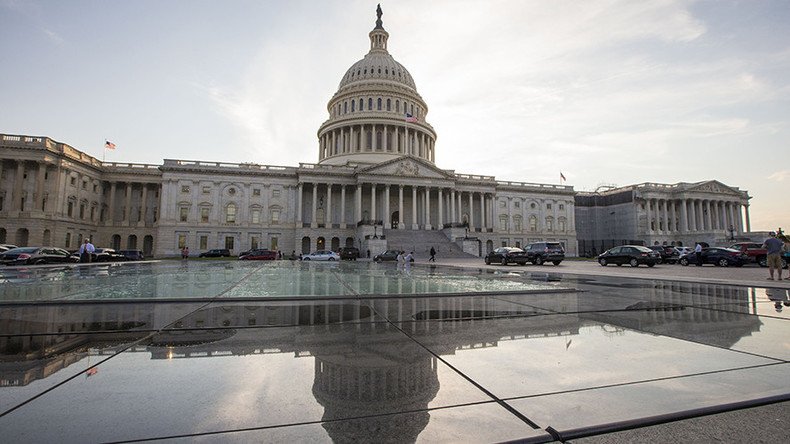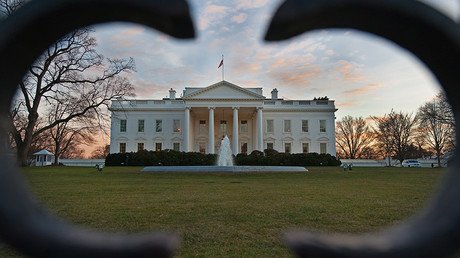US Congress wants to drag out anti-Russian investigation, experts tell RT

The US won’t stop the investigation into Russia’s alleged meddling in the US elections despite a total lack of evidence – due to the simple fact that it suits Washington to pursue further confrontation with Moscow, experts told RT.
“There is no compelling interest for the US government to wrap up the anti-Russian investigation,” Daniel Faraci, a political analyst and director of Grassroots Political Consultants LLC, told RT, adding that Washington is seeking to further stir up anti-Russian hysteria both inside the US and in other countries to curb Russia’s growing international influence.
The anti-Russian campaign based on this investigation as well as the Russia-bashing in the mainstream media are just parts of a strategy that Washington uses to “get ahead of Russia” in the face of a looming “global conflict for the natural resources like oil and water,” Faraci said.
He also denounced all allegations of collusion between US President Donald Trump and the Kremlin as “baseless” and having “no merit whatsoever.”
His words were partly echoed by Daniel McAdams, the executive director at Ron Paul Institute, who said that the US authorities will still say that “they have to continue the investigation… further in 2018,” even though they admit that “they are stuck and have nowhere to go and all [their evidence] is either inconclusive or disproven.”
He also said that the whole situation has been long reduced to “absurd” and brought up the example of US Senator Mark Warner (D-VA), the top Democrat on the Senate Intelligence Committee, who literally “demanded that [Facebook] find evidence of collusion” between Trump and Russia as many as three times.
“It has got so crazy that [we are told] that there is a puppy group on Facebook that actually has a hidden Russian plot to undermine our face in the democratic system. 'It started out with puppies but it will start to insert political messages in this puppy group,' they say,” McAdams told RT, adding, “It is really as if everyone lost their minds on this.”
The Congressional investigation into Russia’s alleged meddling in the US election has already dragged on for 10 months since the vote, but it is still struggling to find any noteworthy evidence that could point to the role of the Russian authorities in the alleged meddling in the US elections.
In the hunt for "Russian meddling," US lawmakers have recently shifted their focus to social media, with Google, Twitter, and Facebook called to testify before Congress.
US media ‘tied to Washington, indy media needed'
Both experts agreed that the mainstream US media have a problem with objectivity and credibility, as they are so closely “tied” to the US establishment they cannot be truly independent.
The US Congress, meanwhile, prefers to crack down on outlets that challenge the government instead of going after those who “cast all journalistic standards aside” in pursuit of high ratings.
“We have about five corporations that control our entire media apparatus. Their propaganda coverage benefits either the Republican or the Democratic Party,” Faraci told RT, describing the situation in the US media field and adding that “it is completely controlled.”
He also called all the “anonymous sources” that are so frequently featured in the western media reports a sign of “the lowering standards” and the MSM’s desire to keep their ratings high at any cost.
McAdams also criticized the US MSM by saying that they are “doing an absolutely terrible job” by casting “all journalistic practices aside in an effort to get the president on pretty trivial matters and on in large sense made- up matters.”
He went on to say that the MSM “are in bed with Washington’s elites.”
“They know that if they go against what Washington’s elites want, they won’t be invited to the parties, they won’t be invited to do interviews, their career will suffer and their clicks will suffer on the internet,” the expert added.
Both experts also said that the US media field needs “healthy” independent news outlets that could serve as “watchdogs for the MSM” and provide the US audience with alternative points of view. However, the US authorities are apparently trying their best to impede the work of such media outlets.
Instead of going after the MSM, the US Congress “investigates and seeks regulation on the free media,” Faraci said, adding that “any alternative news media coming from international sources … [and even] bloggers and social media” face pressure from the US authorities.
He also said that Washington’s goal is “shutting [down] the voices of anything that is not MSM.”














